Join our email list to receive our quarterly newsletter on Food Safety, Market News and New Client Profiles.
|
What is Kosher
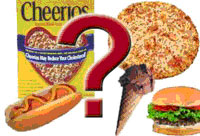
|
It is significant that one of the first commandments given to human beings concerned food. Adam and Eve were told not to eat the fruit of the Tree of Life. Ever since, Jews have always placed great emphasis on gastronomic self-control.
The main principles of Kosher are laid down in the Five Books of Moses and are classified as "statutes" - no reason is given for keeping them other than Jews are commanded to do so. Nevertheless Rabbis have always stressed their essential role in preserving Jewish life.
Just as a healthy diet is god for the body, so Jews keep kosher because it's good for the soul. In the Jewish home, the table is an altar, the kitchen is a domestic sanctuary.
|
Labels and More Labels

|
|
Keeping kosher is an intrinsic part of the daily life of a Jew. Understanding the fundamentals of Kosher is basic to the functioning of the Jewish home. Kosher foods are divided into three categories: meat, dairy and pareve. One of the basic tenets of Kosher is the total separation of meat and dairy products. Meat and dairy may not be cooked or eaten together. To ensure this, the kosher kitchen contains separate sets of dishes, utensils and cookware, and separate preparation areas for meat and dairy. The third category, pareve, is comprised of foods which are neither meat nor dairy and may therefore be eaten with either.
|
|
Foods that are neither meat nor dairy are called pareve. This means that they contain no meat or dairy derivatives, and have not been cooked or mixed with any meat or dairy foods. Eggs, fish, fruit, vegetables, grains, and juices in their natural, unprocessed state are common pareve foods. Other pareve foods include pasta, soft drinks, coffee and tea, and many types of candy and snacks. Although pareve foods present fewer Kosher complexities than either meat or dairy foods, certain points must be kept in mind:
Pareve foods may lose their pareve status if processed on dairy equipment or when additives are used. The label may give no indication of this processing. Chocolate, cookies and other snacks should not be used with meat or meaty foods unless they are certified pareve. For most companies, producing a pareve products is the way to go for they may enter any area of food processing.
|
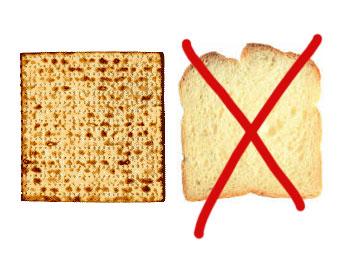
The festival of Passover is celebrated each year by the Jewish people for 8 days commemorating the Exodus of Egypt 3000 years ago. It occurs during the months of April and May. It may vary from year to year s the Jewish calendar is calculated by the lunar months. The main custom of Passover is that the Jewish people are not allowed to eat anything leaven made from the 5 grains- wheat, barley, oat, spelt and rye. Jews will not be able to use any pits or pans or any utensils that have had been used on grains. Therefore Jews will have to clear out our pots and Kosher them with boiling water in order to render any left over grain products in the utensils free of grain origin.
In order to make sure that the Jews may not come to eat any grain products by accident, any seed that looks like grain is also not allowed o be eaten. This includes corn, maize, soybean, rapeseed, peanuts etc. Therefore any of this products or derivatives are not Kosher for Passover.
However in Middle Eastern communities, corn, soy, rapeseed peanut and beans are allowed for Passover and they are called Kosher for Passover Kitniyot. The word Kitniyot means legumes which differentiate it from the normal Kosher for Passover which contain no legumes at all. In Kosher certification of products, Kosher for Passover and Kosher for Passover Kitniyot are terms used often to describe which Passover status the products has.
|
It can be eaten but....
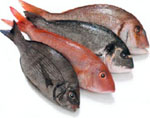 |
To comply with kosher requirements, a fish must have fins and easily detached scales. All other sea creatures including shark, monk fish are considered not kosher and cannot be eaten at all. Fresh or frozen fish should be bought with the skin on so you can check the scales.
|
|
The basic rules about which animals, birds and fish are kosher are set out in Leviticus chapter 11. As for red meat, the animals must have cloven hooves and chew the cud - such as goats, sheep, cattle and deer. However before the meat can be eaten it must be slaughtered by Jewish law and tradition. By default the meat found in supermarkets and butchers will be considered not kosher unless it has a kosher seal on it. Generally products in the general market containing any form of animal based ingredients can be considered not Kosher unless it is strictly supervised by a Kosher certification agency.
|

|

|
By tradition, Jews can eat poultry such as duck, chicken goose and turkey, and also pigeon, pheasant and partridge. Ritual slaughtering for birds are also required and if not, it will be deemed not kosher.
|
INSECTS- Out of the Question!
|
Whereas eating pork involves a single transgression, eating a fly, worm or other kind of creepy-crawly involves several. Insects are banned, so fruit and vegetables liable to be infested with them have to be thoroughly scrutinised and cleansed.
|
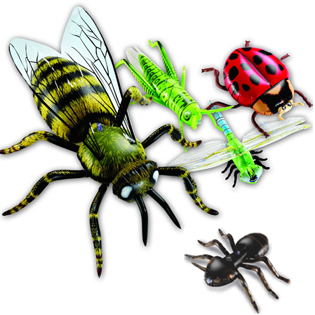
|
MILK AND CHEESE
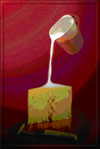
|
Only milk that comes from a Kosher animal is considered Kosher. Normally it dos need some supervision to guarantee it's origin (seeing all milk looks alike), in countries where the source of milk offered for sale is guaranteed by civil law (such as the UK, EU, USA etc), some authorities rule that all milk is guaranteed as Kosher and need not be supervised. Some communities still require their milk be fully supervised and it is known a Chalav Yisrael or loosely known as Supervised Kosher Milk.
When it comes to cheese, though, the rules are tighter. All cheese must be rabinically certified. This is because the curdling agent, the rennet, is often derived from an animal source - usually a calf's stomach. The Rabbis in the Talmud ruled that all cheese must come from a supervised source, even where the rennet was made from herbs. So vegetarian cheeses cannot be used, unless they have kosher certification.
|
GENERAL FOODS

|
Wine and Grape juice likewise must come only from a rabbinically approved source - As it happens non-kosher ingredients occur in the manufacture of non-Jewish wines, such as bull's blood for colouring or more commonly, isinglass, a "fining" agent, which comes from a sturgeon - another reason for avoiding them.
|
|
Bread usually contains fat, which may be of animal (or unknown) origin. Here is also the possibility of an emulsion or glaze being applied to the crust, or of non-kosher fat being used to grease the baking-tins; such fat need not appear on the list of ingredients. Further, the bread may be baked in the same ovens as non-kosher bread or cakes; this too would render it non-kosher.
|

|
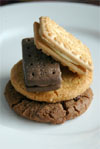
|
They are usually made with non-kosher margarine that could have many ingredients from animal origin. Those made with butter may still not be kosher, as tins may be greased with non-kosher fat and no indication of this will appear on the label. In Cakes present the same problems. In common with all other cooked products, cakes and biscuits whose own ingredients are perfectly acceptable may be cooked in tins or pans used for non-kosher products or in ovens together with non-kosher products. For these reasons, each item must be considered individually.
|
|
They contain fats and emulsifiers which may be of animal origin; even the manufacturers of "vegetarian" margarine cannot always guarantee that the source of their emulsifier is vegetable. Only margarine that is Kosher certified can be used.
|
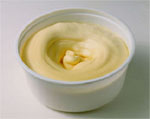
|
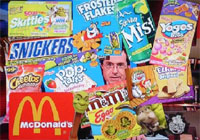
|
Generally because of the ever increasing complexity of processed food production, most processed foods are only eaten if it is Kosher certified or has been thoroughly investigates by a reliable Kosher agency. That is why Kosher food has become a must for Jewish, Muslim and vegetarians as it is a seal of quality ensuring the consumer of a robust external body investigating every ingredient and process that goes into making the product. (See 'Why do Foods Need Kosher?' For more info on this)
|
|